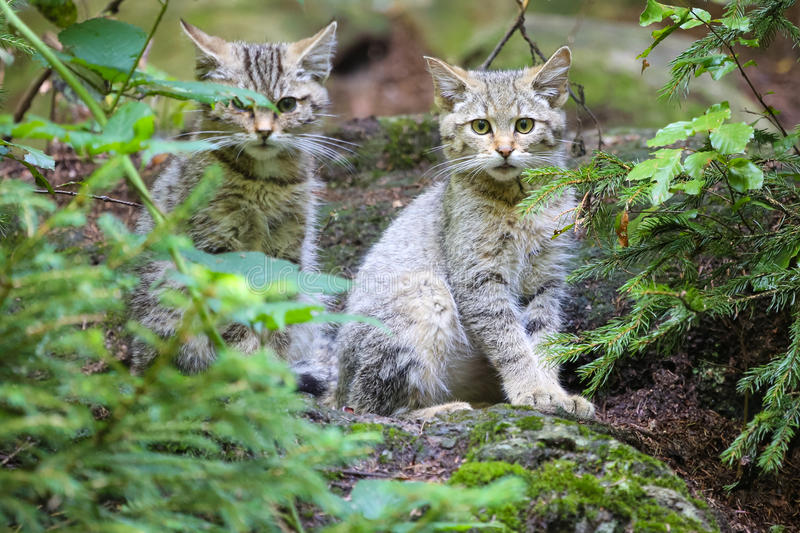It’s no secret that we love animals. We may not be able to go out and catch them ourselves, but that doesn’t mean we can’t help protect them. In this blog post, we’re going to share eight tips for wild cats, so you can do your part in helping these animals live a happy and healthy life. From spaying and neutering to feeding the cats of the world, these tips will help make a difference. So read on, and start making those wild cats feel special!
Make sure your property is safe for cats.
Cats are great companions, but must be kept in a safe environment. If your property isn’t safe for cats, you won’t be able to keep them as a pet. Here are some tips for keeping your cats safe:
— Keep your cat indoors. All cats should be kept indoors unless they have an approved outdoor enclosure. Indoor cats can live long, healthy lives, and their safety is paramount.
— Install fencing around your property. Cats can get out of fences if allowed, so ensure enough space to roam and keep them from getting too close to dangerous areas or traffic. Fencing should be at least 6 feet (1.83 m) high, with a 3-foot opening on the side that the cat cannot climb over.
— Make sure your home is clean and free of dangerous objects like plants with thorns or sharp edges. Cats love to play and explore, but if dangerous objects are nearby, they may try to play with them and get hurt.
— Keep trash closed off, so cats can’t access it. Cats eat garbage, which can lead to health problems if ingested.

Feed them a healthy diet
1. Make sure their diet includes a variety of fresh, nutrient-rich foods.
2. Feed them small meals throughout the day rather than one large meal.
3. Offer plenty of water and fresh litter to drink.
4. Avoid feeding them unhealthy foods or treats that could lead to health issues.
Build a den for them
If you’re thinking of building a den for your wild cat, be sure to take into account their needs. A den will provide a safe place for the cat to rest, eat, and hide from predators. Choose a sheltered location with plenty of space to curl up in. Provide some bedding material, such as shredded paper or soft blankets. Add a hiding spot for the cat to use when they require privacy.
Provide toys and enrichment
Looking for ways to keep your feline friend entertained and intellectually stimulated? Here are a few suggestions to get you started.
1. Provide toys and enrichment. This can include small furniture, balls, puzzle boxes, shredded paper, catnip, feathers, and other interesting objects.
2. Play “cat and mouse.” Hide the toy somewhere in the house before your cat games and explore it. When she’s found it, give her a lavish reward, such as a play session with her favorite toy or petting.
3. Create special hideouts for your cats. This could be a secret spot under the bed or in an unused corner. Let them know about their new home-away-from-home by hiding treats or toys before you go out for the day.
4. Invest in interactive scratching posts made specifically for cats. These elevated platforms provide hours of exercise and stimulation for felines who love scratching textures and poles.
Keep them safe from predators.
The best way to keep wild cats safe from predators is to ensure they have a place to hide and a food source. You can also try creating a “safe zone” for them by positioning objects between the cat and potential predators.
Make sure they have the proper vaccinations.
Wildcat health begins with vaccinations! Feline leukemia (FeLV) and rabies are the most common diseases in wildcats, so it’s important to ensure your cat is immunized against both. FeLV can cause severe illness or death in cats, while rabies is a deadly virus that can infect humans and other animals. If your cat is not current on their vaccinations, please consider getting them updated before bringing them into your home.
Keep your cat fed healthy food and water to avoid any illnesses from parasites or bacteria. Make sure they have plenty of fresh air and exercise to stay healthy overall. And lastly, always watch for any suspicious behavior or changes in your cat’s health—if you see anything odd, contact your veterinarian immediately!
Make sure they have a veterinarian.
Wild cats can be very difficult to take care of and need a veterinarian. Ensure they have been vaccinated, neutered/spayed, and their diet includes enough fresh food and water. If you care for a wild cat, ensure they have plenty of room to move and a litter box.








